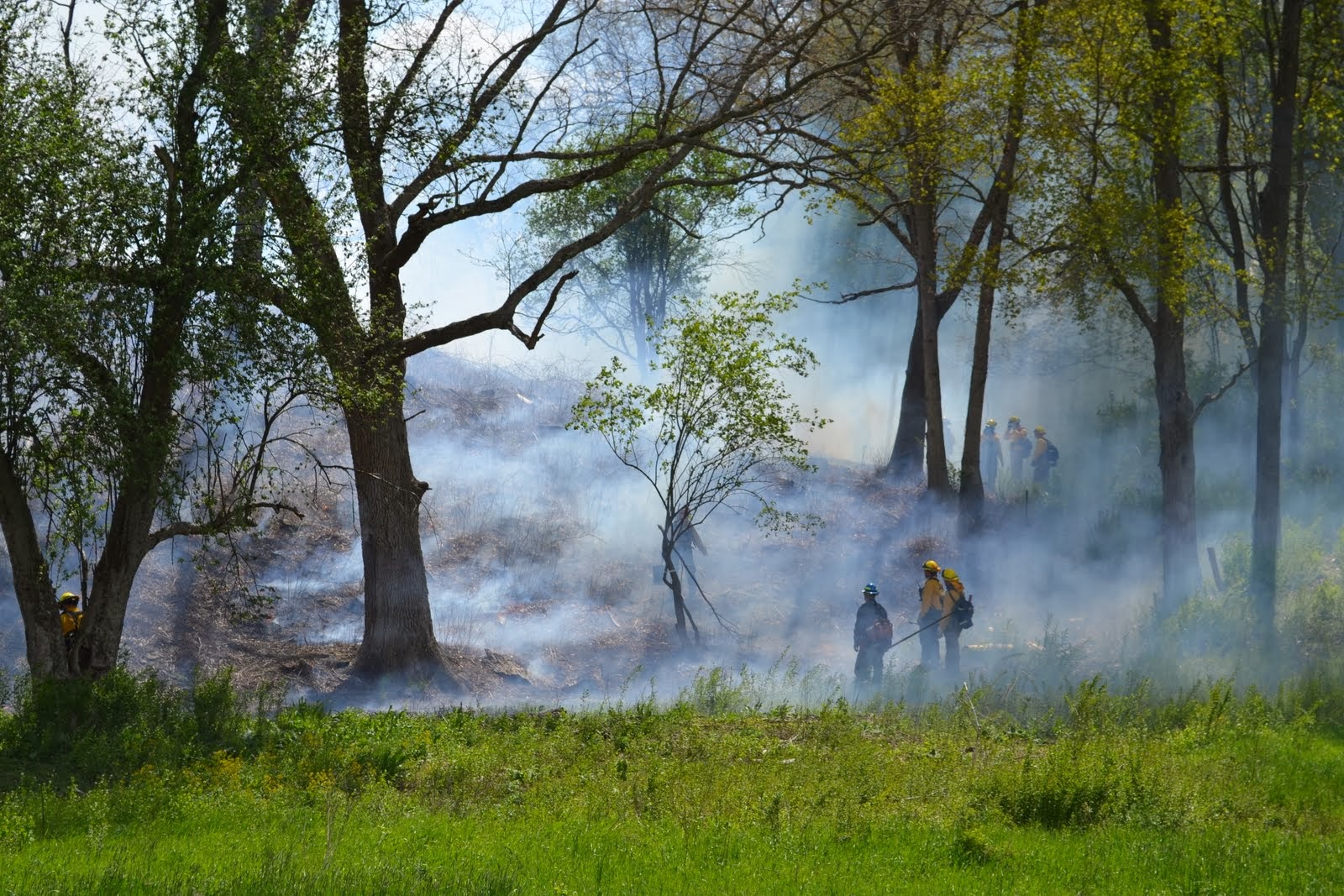Our center is actively seeking new opportunities for research collaboration.
Currently funded research projects:
Firescapes in the Mid-Atlantic
USDI Joint Fire Sciences Program, Firescapes in the mid-Atlantic: Mismatches between social perceptions and prescribed fire use, 08/01/2016- 07/31/2019, Erica Smithwick (PI), with Margot Kaye, Alan Taylor, Katherine Zipp, Peter Newman (co-PIs) ($327,726)
Project Description. Fire in forested ecosystems is a key natural disturbance and a valued management tool, however little is known about social barriers and facilitators that influence prescribed fire implementation in the mid-Atlantic U.S. Prescribed fire is broadly implemented in the western and southeastern U.S., where fire-prone ecosystems dominate the landscape. Concerns about wildfire risk and impacts on social, economic, and ecological costs are high in these areas and significant attention has been placed on social acceptance of fire mitigation activities. In contrast, there are few social science studies about fire in the Northeast. This is despite the fact that wildland urban interface (WUI) is pervasive in the area, and risks of fire from people, in addition to baseline risk from natural causes, is high. Moreover, across the mid-Atlantic, prescribed fire use is motivated by numerous factors in addition to mitigation of fire risk, including ecosystem restoration for biodiversity and game habitat.
Our work will result in a synthesis of prescribed fire treatment effectiveness across forest locations in the mid-Atlantic (~southern NY, NJ, MD, PA, WV), and surveys of perceptions of burning activity by surrounding communities, both of which will be shared with managers at study locations and in broader outreach forums such as the North Atlantic Fire Science Exchange. We will produce a video about prescribed fire management and community interactions through WPSU, a public broadcasting company of Penn State University. By exploring social perceptions of fire as well as ecological impacts of fire, this research is directly relevant to forest policy in the region and can enhance climate change adaptation plans and prioritize approaches and places for enhancing social communication about current land management practices. Our work will also enhance partnerships among state- and federal-level agencies, universities, and NGOs. At the broader scale proposed here, we will characterize mismatches through an ‘anticipatory’ approach, characterizing the conditions where and when social communication and awareness are likely to become more needed in the future as prescribed fire becomes more common following regulatory relaxation.
VIsualizing Forest Futures (VIFF)
National Science Foundation, CNH-L: Visualizing forest futures under climate uncertainty: integrating indigenous knowledge into decision support tools for collaborative decision making, 06/01/2016 – 05/31/2021, Erica Smithwick (PI) with Robert Scheller, Melissa Lucash, Rebecca Bird, Nancy Tuana, Klaus Keller, Robert Nicholas ($1,700,000)
This interdisciplinary research project will examine how human values and practices impact preferences about natural systems and influence the trade-offs made in decision making about forest resources and sustainability. The project will focus on two overarching themes: the importance of feedbacks in natural-human systems and the importance of value systems and customary practices that are not adequately captured by knowledge systems alone. It will provide new insights and information regarding how changes in forest ecosystem structure and function result in new relationships between humans and forest species and services as well as how forest-management practices influence ecosystems. The project also will advance understanding of the complex reciprocal relationships among values and practices, including traditional knowledge of indigenous people, and decision making by individuals and communities. Furthermore, the project will enhance understanding of the degree to which individuals and communities hold cultural, spiritual, ethical, and aesthetic values and engage in customary forests practices that are not adequately captured by conventional knowledge systems. Because the project’s participants include the College of the Menominee Nation, the project will provide opportunities for Native American students to have education and training opportunities with respect to both basic research and to the use of innovative technologies, including virtual reality software and devices. Other education and training opportunities in the conduct of interdisciplinary science will be provided for graduate students and post-doctoral scholars. The project will promote collaborations among educators, scientists, and managers in the region and will inform ongoing environmental assessment activities focused on indigenous peoples and tribal knowledge. The project also will contribute to enhanced decision making for environmental change adaptation in tribal communities by providing clear routes by which values and relationships with forests can be embedded within state-of-the-art optimization procedures, and it will assist forest managers and community members in working together to evaluate trade-offs when making decisions.



